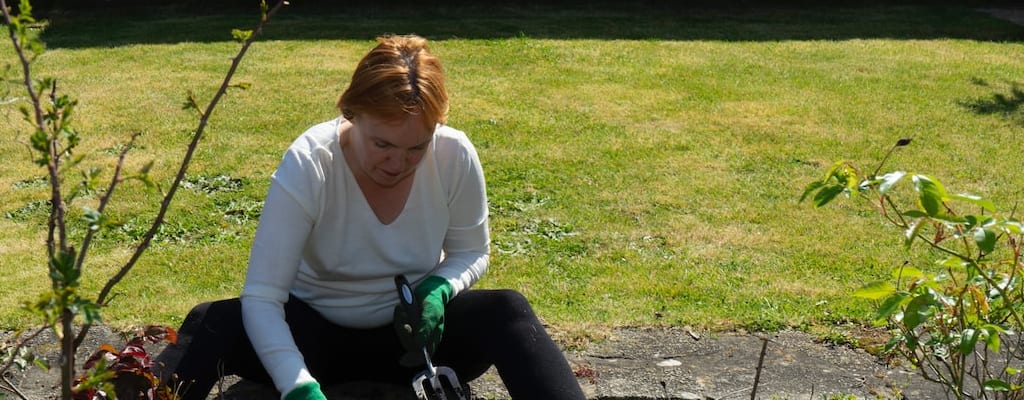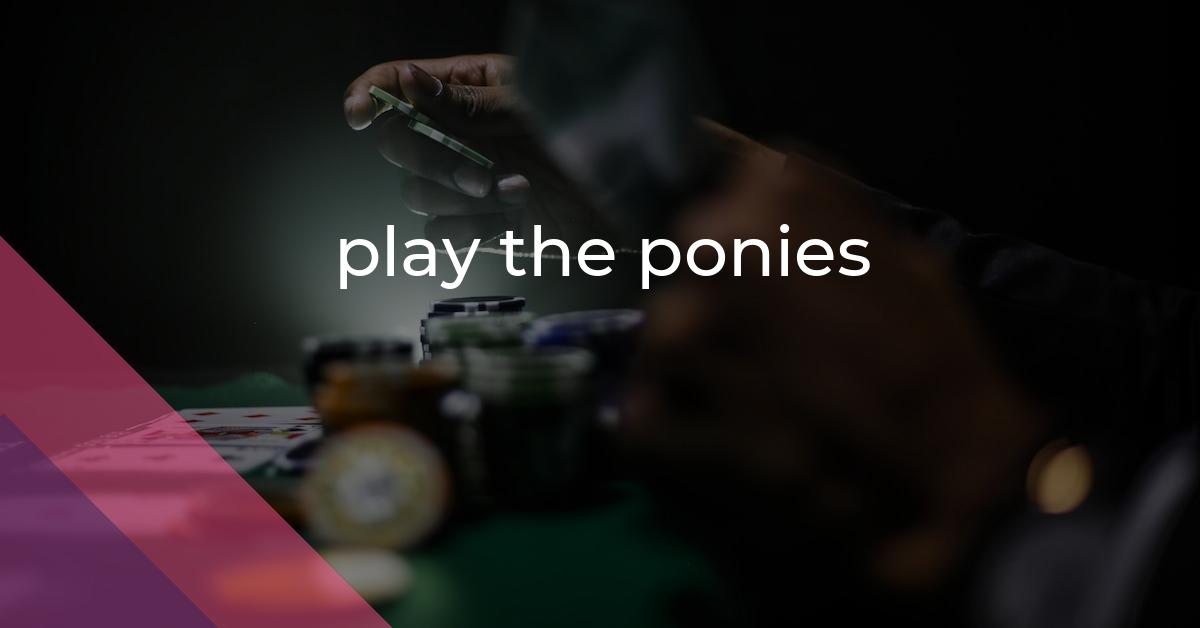play the ponies: Idiom Meaning and Origin
What does ‘play the ponies’ mean?
The idiom "play the ponies" refers to the act of betting on horse races, often at a racetrack. It implies engaging in gambling or taking risks in hopes of monetary gains.

Idiom Explorer
The idiom "take a gamble" means to take a risk or chance on something without being certain of the outcome.
The idiom "runners and riders" refers to the list of participants in a race or competition, particularly in horse racing. It symbolizes the range of options or contenders and is commonly used to discuss the potential outcomes of an event.
The idiom "run for the roses" means to compete in something prestigious or valuable, particularly in a horse race.
The idiom "run a risk" means to take a chance or engage in an activity that could have negative consequences or uncertain outcomes.
The idiom "roll the dice" means to take a risk or make a decision without knowing the outcome or consequences.
The idiom "roll of the dice" means taking a chance or accepting a situation where the outcome is uncertain and unpredictable.
The idiom "ride one's luck" means to depend on chance or luck, often in a risky or daring situation, rather than on one's own skills or abilities. It suggests taking advantage of favorable circumstances without having much control over the outcome.
The idiom "raise the stakes" means to increase the level of risk or intensity in a situation, typically by increasing the amount of money or resources involved.
The idiom "pony up" means to pay or give money, especially when it is expected or demanded. It is often used in a casual or slightly aggressive way to urge someone to contribute their share or fulfill their financial obligation.
Equestrian Stakes
play with house money is a related idiom that is often used in gambling contexts. It refers to when a person is using their winnings from a previous bet to place new bets, rather than using their own initial stake or funds. The phrase originates from the idea that when someone is gambling with their winnings, they are no longer risking their own money, but rather the money that they have already won. In the context of horse racing, playing the ponies can sometimes involve playing with house money, especially if a bettor has already won a significant amount.
pony up is another related idiom that is commonly used in informal and colloquial conversations. It means to pay or contribute money, often in a reluctant or unwilling manner. The phrase "pony up" is derived from the practice of contributing money to a pool or prize fund in horse racing. In this context, bettors would "pony up," or contribute their funds to the overall prize pool, in the hopes of winning a share of the winnings. In a broader sense, the idiom can be used to describe any instance where someone is required or expected to contribute money.
The idiom "play the ponies" is deeply rooted in the world of horse racing and carries with it a specific meaning within that context. It is used to describe someone who is engaging with the horse racing industry in some capacity, whether as a spectator, a bettor, or even a horse owner. This idiom encompasses the excitement, risk, and anticipation associated with horse racing, as well as the potential for monetary gain. For those familiar with horse racing, "play the ponies" is a phrase that conveys a sense of involvement and enjoyment in the sport.
The popularity of the idiom can be attributed to the enduring allure of horse racing in the United States. Horse racing has a rich history in the country, dating back to colonial times, and has evolved into a highly regulated and organized industry with a devoted fan base. The idiom "play the ponies" has become deeply intertwined with the culture and language surrounding horse racing, as it is a phrase that encapsulates the excitement and thrill of the sport.
As with many idioms, the exact etymology of "play the ponies" is difficult to trace. However, it is believed to have emerged from the early 20th-century practice of horse racing enthusiasts playing with small racehorse figurines to simulate races. This recreational activity allowed fans of the sport to engage with it outside of the racetrack and became a popular pastime. Over time, the phrase "play the ponies" started being used more broadly to describe any form of involvement or participation in horse racing.
Today, "play the ponies" is a well-known and widely understood idiom in the United States. Its usage has been solidified not only through colloquial conversations but also through its portrayal in various forms of popular media. Movies, books, and television shows often depict characters "playing the ponies" as a way to convey their involvement in the horse racing world. The idiom has become a part of the lexicon surrounding horse racing and is instantly recognizable to those familiar with the sport.
The history and significance of "play the ponies" demonstrate the enduring impact of idioms on language and culture. When people use this idiom, they are not only engaging with the specific meaning of the phrase but also tapping into a broader tradition of language use within the horse racing community. The idiom serves as a reminder of the intricacies and nuances of language and how idioms can encapsulate whole worlds of meaning within a few simple words.
Example usage
Examples of how the idiom "play the ponies" can be used in a sentence:
- He spends every weekend at the racetrack, playing the ponies.
- She loves the excitement of horse racing and often plays the ponies during the summer months.
- John won a significant amount of money by playing the ponies last week.
More "Gambling" idioms



